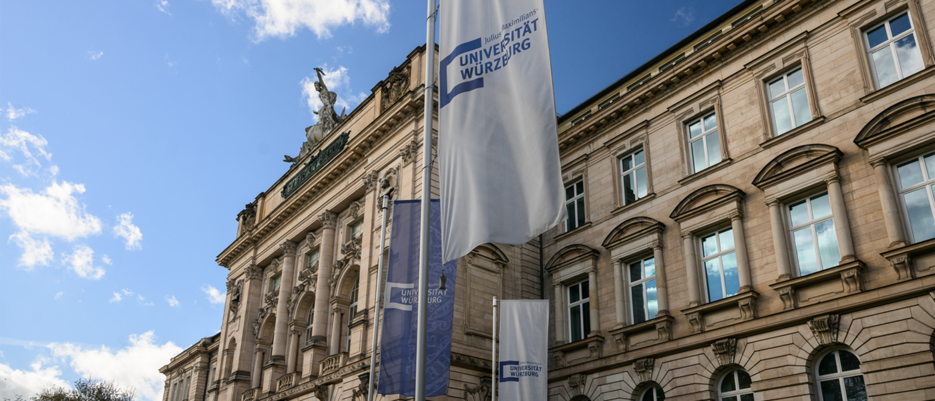DFG Funding Atlas Confirms JMU's Strength in Research
01.12.2024In its Funding Atlas, the German Research Foundation (DFG) describes which universities have successfully applied for research funds. The University of Würzburg scores very well.)

Julius-Maximilians-Universität Würzburg (JMU) confirms its position as a strong research institution in the recently published Funding Atlas 2024 of the German Research Foundation (DFG): With a total funding volume of 170.9 million euros in the years 2020 to 2022, a 19% increase was achieved by JMU and the University Hospital (UKW) Würzburg % compared to the 2021 Funding Atlas (reporting period 2017 to 2019). Nationally, the university improved its ranking by two places to 23rd; in Bavaria it ranks fourth as in the previous round.
The DFG publishes its Funding Atlas every three years. JMU President Paul Pauli is particularly pleased that JMU is once again very well positioned here: ‘This is a great success for the JMU research community, especially as competition for DFG funding is tough. It is especially noteworthy that our university is doing so well in both the natural sciences and the humanities.’
1st Place Again in the Research Field ‘Condensed Matter Physics’
The DFG Funding Atlas not only offers a comparison of universities. It also provides insights into third-party funding strength of individual scientific disciplines, subject areas and research fields. In the research field ‘Condensed Matter Physics’, to which the Würzburg-Dresden Cluster of Excellence ‘Complexity and Topology in Quantum Matter’ (ct.qmat) can also be assigned, JMU assures a leading position: With DFG funding of 21.8 million euros in the years 2020 to 2022, it once again achieves the first rank nationwide.
The university also excels in other areas of natural sciences. In the research field ‘Molecular Chemistry’, it ranks 7th in Germany and 2nd in Bavaria. ‘Astrophysics and Astronomy’ achieved a particular increase in third-party funding: JMU moved up 14 places and is now ranked 7th in Germany and 3rd in Bavaria.
Excellent Research Confirmed in Other Areas
JMU emphasises its research strength as a comprehensive university by placing three further research fields among the top 10 in Germany. These include ‘Microbiology, Virology and Immunology’ (8th place in Germany, 4th place in Bavaria), ‘Materials Science’ (9th place in Germany, 2nd place in Bavaria) and ‘Ancient Cultures’ (10th place in Germany, 1st place in Bavaria).
The significant increase in third-party funding in ‘Literary Studies’, which, according to the DFG's subject classification system, includes older and modern German literature, is noteworthy. In this field of research, JMU was able to move up 12 places in Germany to 13th place and ranks second among Bavarian universities.
Rising Income Also From Federal and EU Funding
Alongside the DFG, the federal government is one of the most important sources of funding for JMU and UKW. For the period 2020 to 2022, the federal government provided 67 million euros for research and development projects – in the period 2017 to 2019 it was 58 million euros.
The acquisition of funding at the European level also plays a key role. A total of 16.9 million euros was acquired in the new Horizon Europe framework programme in 2021 and 2022. “I am particularly happy about our the success in acquiring funding from the European Research Council (ERC)”, comments Caroline Kisker, Vice-President for Research and Academic Career Development.






